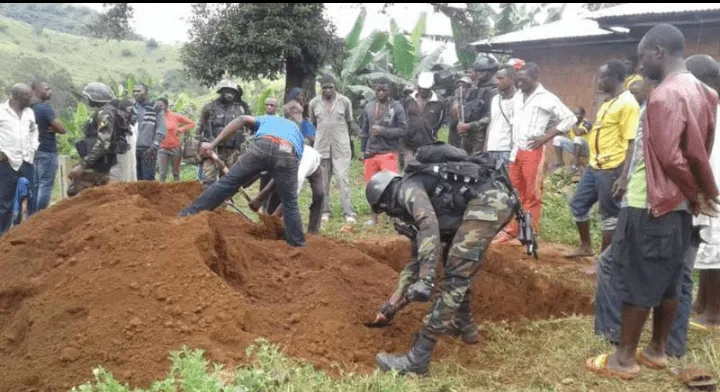The Cameroon government has been accused by many groups and individuals of hiding some details of the Ngarbuh massacre in the North West region.
Despite the differences in the facts of the incident, Human Rights Watch says government “does establish that Cameroonian soldiers attempted to cover up the truth around the killings and includes a government pledge to work with human rights organizations.”
Though “flawed”, government’s report Lewis Mudge, HRW Central Africa director says the move is an important first step towards justice but more needs to be done. “A more in-depth investigation is needed to establish a clear timeline of events and to identify all those responsible, including anyone further up the chain of command, for the purposes of prosecuting them” says Mudge.
Unlike what government declared, Human Rights Watch says it spoke with witnesses and residents who said that there was no confrontation between armed separatists and security forces, that the killings were deliberate and aimed at punishing the population accused of harboring and supporting separatists.
“Human Rights Watch found that government forces, including members of the Rapid Intervention Battalion, the elite unit of the Cameroonian army, and armed ethnic Fulani killed 21 civilians in Ngarbuh, burned five homes, pillaged scores of other properties, and beat residents. The armed Fulani may be the “local vigilance groups” referred to in the government news release” the US based rights group reveals.
HRW’s findings it should be recalled sparked a conflict with government as it was accused by some top officials of partnering with separatists. This eventually saw officials at the Douala international airport refused to allow the Human Rights Watch senior researcher on Central Africa to enter the country on April 12, 2019. “Despite numerous requests for information, no explanation was ever provided for denying her entry” HRW adds.
Despite all this, Lewis Mudge says “the government’s decision to release the commission’s findings is hopefully a signal of an end to denying and hiding the truth around abuse… We are optimistic that this is a new opening to work with the government as an independent collaborator to end abuse by both state and non-state actors.”
HRW like many other rights bodies has registered several instances of rights abuses in the North West and South West regions since the escalation of the Anglophone crisis in 2017 and have often met resistance from government officials in calling for investigations and punishment of those responsible.
Mimi Mefo Info


